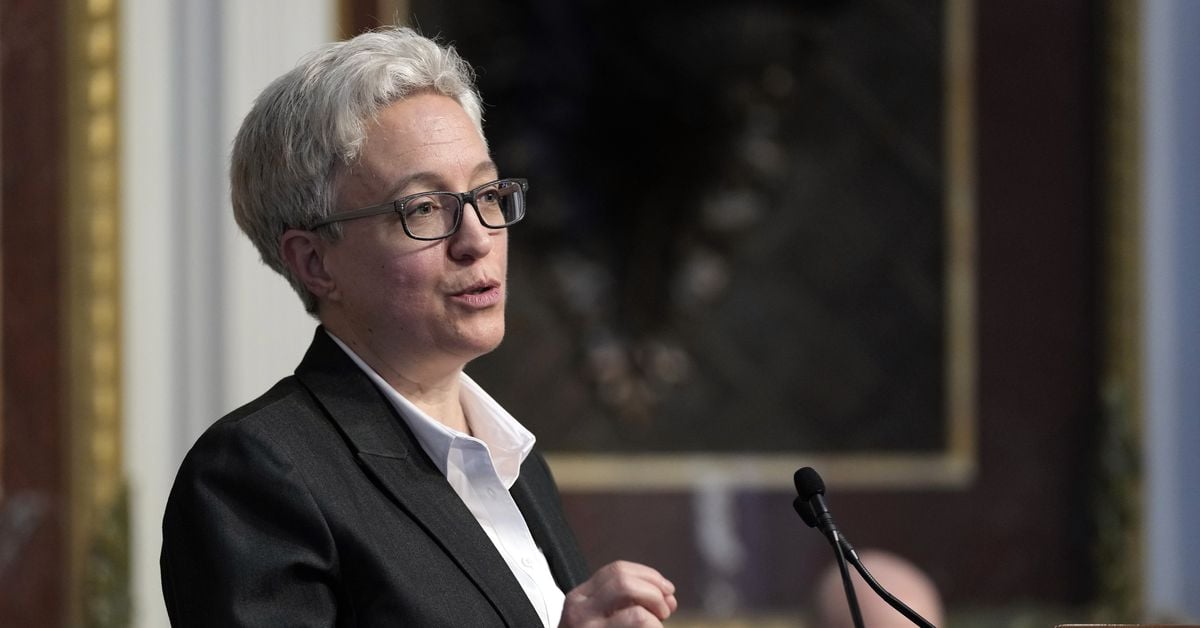- cross-posted to:
- politics@lemmy.world
- cross-posted to:
- politics@lemmy.world
Four years ago, the state decriminalized all drugs. Now it’s trying to course-correct — and might make a mistake in the process.
In 2020, it looked as though the war on drugs would begin to end in Oregon.
After Measure 110 was passed that year, Oregon became the first state in the US to decriminalize personal possession of all drugs that had been outlawed by the Controlled Substances Act in 1970, ranging from heroin and cocaine to LSD and psychedelic mushrooms. When it went into effect in early 2021, the move was celebrated by drug reform advocates who had long been calling for decriminalization in the wake of President Nixon’s failed war on drugs.
Now, amid a spike in public drug use and overdoses, Oregon is in the process of reeling back its progressive drug laws, with a new billthat aims to reinstate lighter criminal penalties for personal drug possession. And while the target is deadly drugs like fentanyl, the law would also result in banning non-clinical use of psychedelics like MDMA, DMT, or psilocybin — drugs that are unconnected to the current overdose epidemic and the public displays of drug use.
Decriminalisation goes hand in hand with support for drug addicts, drug centers and healthcare in general. You can’t just decriminalise and call it a day.
Exactly. Oregon remains next to last in terms of availability of drug treatment.
People cite the Portuguese example of how decriminalization of drugs resulted in an overall reduction of addiction, etc., but fail to include how the Portuguese expanded drug rehabilitation services for its citizens.
I think they did add funding to drug centers and healthcare. The issue is that they did not force anyone to go there. They handed out fines of $100 and said they would waive the fine of the person checked into a addiction support center. Only 1% of them did. People were just getting fined multiple times and ignoring it. There was not really any incentive for people to actually get help.
Helping people by punishing them sounds pretty flawed indeed… The problem is that this failed attempt will be used by detractors as an example now…
They never actually rolled out any of the support programs, the rehabs, or any of the alternative legal programs that were in the bill. The funding was there, but nothing was really done with it. The whole thing was flawed from the start and was set to fail because it wasn’t actually implemented as it should have been. The 110 bill laid out plans for this huge support system and infrastructure that never materialized.
I guess a better way to do it might be to fund support first and then do decriminalization.
They never actually doled out any of the money to anyone in order to actually expand or open more treatment centers. This voter-passed law was doomed from the start because neither Democratic or Republican leaders wanted this. Now, they’ve rolled the law back and given more funding to police. Both these parties are garbage.
The decriminalization started pretty soon after the measure was passed. The disbursement for the fund was delay and, apparently, a mess. Building something takes time and handing buckets of money to existing facilities who have only ever run on a shoe string budget was doom to be overwhelmed.
The citations were for a maximum of $100 or complete a health assessment in 45 days by calling the addiction recovery hotline. The problem here is the citations were never alter to include the phone number to schedule an assessment.
Getting help, as I understand the prevailing sentiment of those who work in the system, is the constant signal that the system exists and won’t screw you over. When you’re ready, we are here.
You cannot successfully decriminalize all drugs in a for-profit health care system.
You will never stop an epidemic of opioid abuse unless you can address chronic pain because many of those people have legitimate chronic pain issues that they can’t afford to deal with medically.
I have a nerve disorder and a neurologist tried treating it unsuccessfully with different opioids for a while. I didn’t get hooked enough that I couldn’t quit cold turkey, but the withdrawal was two very bad days. As I said, it was unsuccessful and we have decent insurance. But if it worked and we lost our insurance? I would absolutely be one of those people. The disorder is completely under control now, by the way, so no pity is necessary.
Disingenuous attribution of a local environmental variable to a national crisis is pretty pathetic. Oregon isn’t even exceptionally high on the opiod death rate.
The dems here were more concerned about the upcoming election and the homeless/drug issues being blamed on them as a lot of locals like to do. This is yet another example of their so called ideals being sacrificed in order to maintain power. Now all that rehab funding that they never even began distributing ver the last four years will be going to police and jails.
Almost as though making big sweeping policy changes without properly thinking through the consequences can be destructive to society.
Drugs are bad mkay
Removed by mod
110 was a massive failure that needs to be un-done, any issues with less problematic drugs can be handled on a one by one basis like we did with marijuana.
110 failed because it was never fully-implemented. The intent was to have support systems in place that were never funded and set up. As a result, this is what happened.
The support systems weren’t needed because less than 1% of those ticketed under 110 actually sought support. ;) Addicts aren’t going to volunteer for treatment.
What support? There was no support. Even the article you posted goes into detail how the state never followed through with it plans to provide the critical infrastructure needed for treatment, for alternatives to jail or prison, or anything else that 110 promised. They just made drugs legal and called it a day.
Again, you need the support systems if people actually sought treatment, but they never did seek treatment.
We didn’t have long lines of people waiting for non-existent treatment centers, out of 16,000 people ticketed under 110, less than 150 sought treatment, which was well within current capacity.
Why would anyone seek help if there is none? Do you even hear yourself? Lol
There is existing help, 110 was to provide ADDITIONAL funding, presumably to assist with what was expected to be a mass influx of new patients.
That influx never happened, because treatment was 100% optional.
Did you even read the article you posted?
People continually seize upon this 1% figure. The subtext, and explicitly your’s, is “addicts are addicts and they won’t get help if you don’t force them.” The reality is much more complicated and individual than that. It varies from individual to individual and where they are in the addiction and recovery events. Addicts are often in the grips of multiple, complicating issues include mental health and trauma. They usually lack the education and framing to see that clearly and the addiction can be the way they cope. Many want help, want to change, don’t know how to, don’t believe they can, and when do, them moment passes all too quickly.
The solution, of course, is to make them go to treatment. But this does not work and continued thinking that it will is a mixture of hopeful naivete and willful ignorance.
Then, of course, the subtext continues. “People who don’t realize that addicts need to be forced are naive and waste money and time being too gentle with these addicts.”
You cited an article from OPB published in 2022. Here is a more recent article from OPB exactly 2 year later. From the article:
The Legislature, the court system and the bureaucracy under two governors ignored or rejected proposed solutions as seemingly straightforward as designing a specialized ticket to highlight treatment information. They declined to fund a proposed $50,000 online course that would have instructed police officers on how to better use the new law. They took no action on recommendations to get police, whose leaders campaigned against the ballot measure, talking with treatment providers after decriminalization passed.
Police hit the streets with the old traffic citation that said nothing about treatment making the ticket disappear.
Oregon has made it’s decision. I, for one, think it’s for the worse.
You’re welcome to think it’s worse, the end results likely will not be because we were better off before 110.
That’s only if you think the only thing that changed was 110. Clearly, it was not.
If this were accurate then why have meth and heroin been such a problem for decades prior to this law passing? How does sticking someone in jail for a couple months keep a homeless drug addict from going right back to it when they get out?
The problem EXPLODED after 110 passed with a massive increase in overdose calls. See the stats elsewhere in the thread.
During COVID when the rest of the population was losing their minds over toilet paper?
Can you point to a source showing the problems in Portland, Salem, and Eugene outpaced those of other comparable cities?
Can you explain how jail is going to fix the problem when that was the default ‘solution’ during the 100 years prior to M110 passing?
Jail is the stick, treatment is the carrot.
Go to jail or get treatment.






